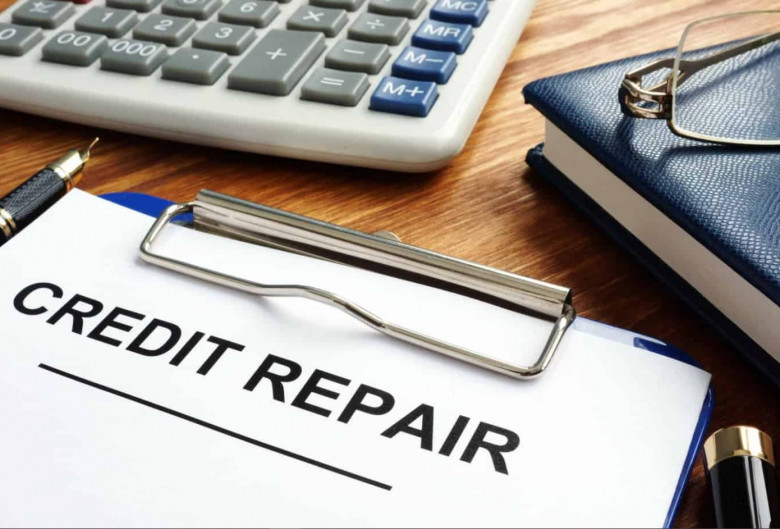views
Introduction
The Promise of Quick Fixes
“Fix your credit in 7 days!”
“Boost your score by 200 points overnight!”
Sound familiar?
Fast credit repair services make big promises. They claim they can erase bad credit, remove collections instantly, and skyrocket your score in record time. The truth? Most of them are full of false hope, unrealistic timelines, and shady tactics.
Why So Many People Fall for Fast Credit Repair
Let’s face it—bad credit is stressful. It limits where you live, what you drive, even what job you get. So when someone waves a magic wand and says they can fix it all fast, it’s tempting. But here’s the catch: there’s no magic wand.
What Is Credit Repair, Really?
A Simple Definition
Credit repair is the process of improving your credit score by addressing inaccuracies, paying down debt, and establishing responsible credit habits.
What Credit Repair Can (and Can’t) Do
✅ Can:
-
Dispute inaccurate or outdated info
-
Help rebuild positive credit history
-
Negotiate settlements or deletions
❌ Can’t:
-
Remove accurate negative info
-
Instantly fix bad credit
-
Guarantee a score boost
Legal Credit Repair vs. Shady Operations
A legit credit repair service educates you, works with the credit bureaus, and complies with the law. A shady one just spams disputes and charges you endlessly with little to no results.
How Fast Credit Repair Services Work
Typical Claims They Make
-
“We’ll delete bankruptcies!”
-
“Collections? Gone in 24 hours!”
-
“No work from your end—just pay and relax!”
Tactics Used by These Companies
-
Mass-disputing all negative items, hoping some get deleted
-
Using templates or bots to file complaints
-
Encouraging you to create a CPN (Credit Privacy Number)—which is illegal
Are These Tactics Effective or Just Smoke and Mirrors?
Sometimes, temporary results happen. But those deletions often come back once the item is verified again. It’s like covering a crack with duct tape—it might hold for a while, but it’s not a fix.
The Truth Behind the “Quick Fix” Myth
What the Law Says About Credit Reporting
Under the FCRA (Fair Credit Reporting Act), bureaus have 30 days to investigate disputes. Nothing happens instantly. Period.
Why Real Credit Repair Takes Time
You didn’t ruin your credit overnight—and you won’t fix it overnight either. Solid credit repair takes discipline, strategy, and time.
What Happens After You Stop Paying the Service?
Most services work while you’re paying. Once you stop, so do the disputes—and sometimes the items come right back. You’re left with a lighter wallet and the same score.
Common Scams and Red Flags
Upfront Fees (And Why They’re Illegal)
Legit companies can’t charge you before they’ve done any work. If they do, it’s a direct violation of CROA.
“Guaranteed” Score Increases
There are no guarantees in credit. If they promise specific results—run.
Fake Tradelines and ID Manipulation
Some shady services add fake tradelines or encourage you to use a CPN instead of your SSN. That’s fraud and can get you in serious legal trouble.
Disputing Accurate Info – The Dangerous Game
Some will dispute every item, including the ones that are true. If reinserted, your score drops again—and you might lose credibility with bureaus.
How Real Credit Repair Should Be Done
Step-by-Step DIY Credit Repair
-
Get your credit reports
-
Dispute inaccurate items
-
Pay down balances
-
Build new positive tradelines
-
Monitor your progress monthly
The Role of Credit Counseling
Nonprofit counselors can help you organize finances, negotiate with creditors, and create a debt payoff plan—without scamming you.
Working with a Legitimate Credit Repair Organization
Look for companies that:
-
Are upfront about pricing
-
Don’t make promises
-
Offer a written contract
-
Allow cancellation anytime
The Legal Side of Credit Repair
The Credit Repair Organizations Act (CROA)
This law protects consumers from fraud. Key points:
-
No upfront fees
-
Right to cancel within 3 days
-
Full disclosure of services
What Credit Repair Companies Are Required to Tell You
-
Your right to fix credit on your own
-
The total cost
-
Your rights under federal law
How to Report Fraudulent Services
-
FTC.gov
-
ConsumerFinance.gov
-
Your state’s Attorney General
Realistic Timelines for Credit Improvement
What You Can Fix in 30 Days
-
Remove reporting errors
-
Pay off high balances
-
Become an authorized user
What Takes 3–6 Months
-
Build a history of on-time payments
-
Improve credit mix
-
Negotiate settlements
Long-Term Credit Building (1+ Years)
-
Remove older delinquencies




Comments
0 comment